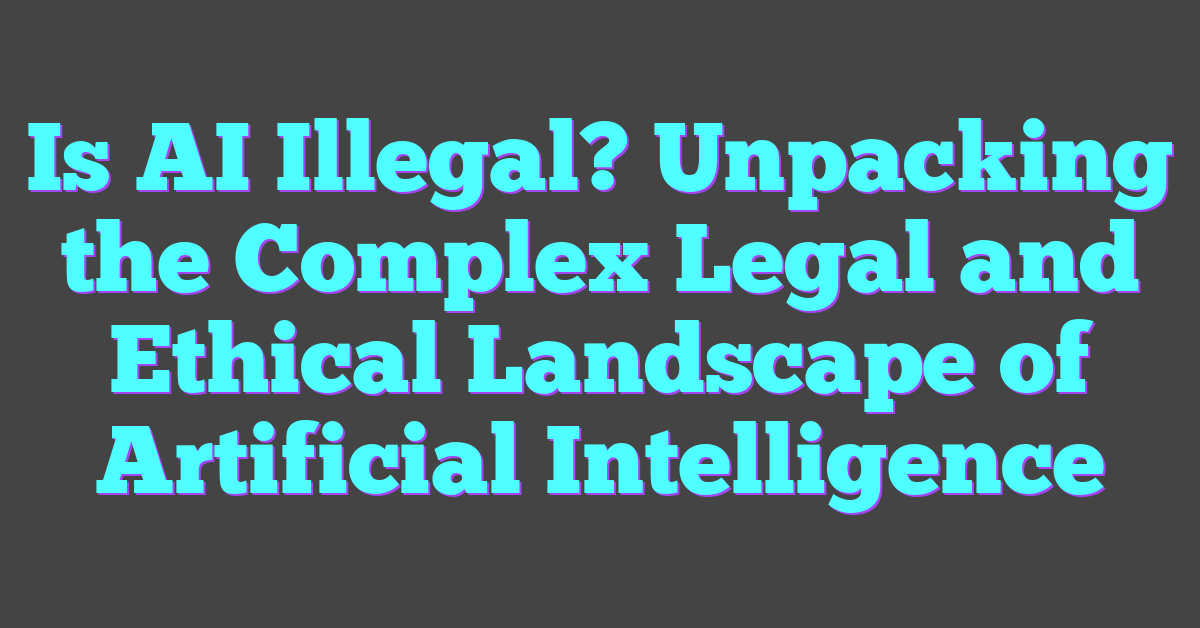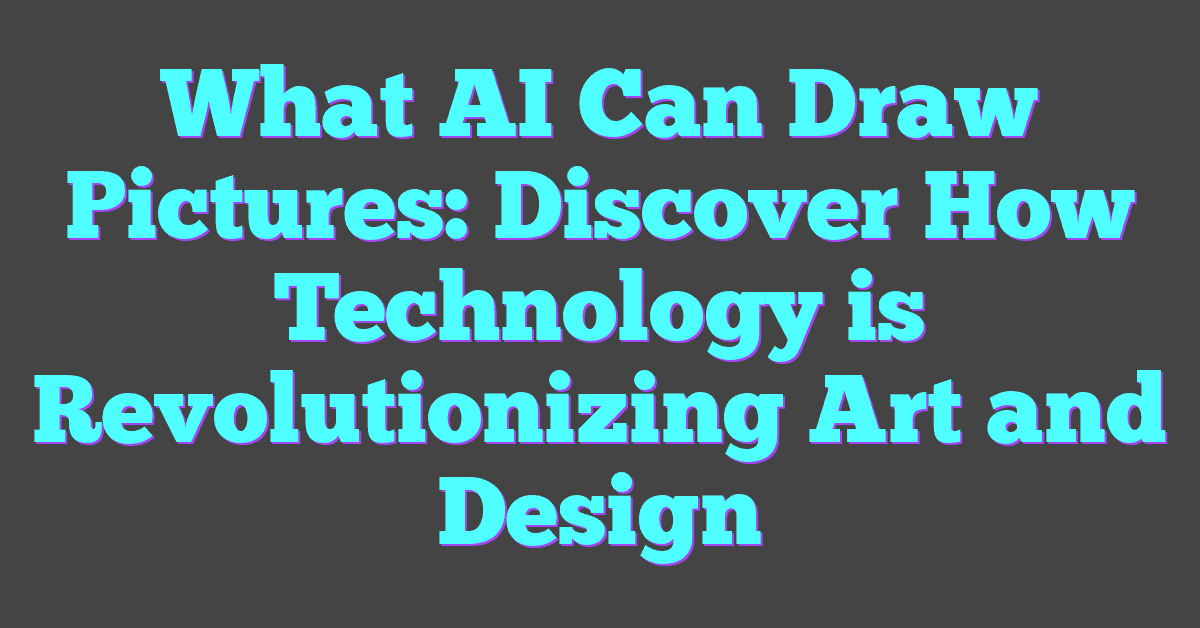The rise of artificial intelligence has sparked countless debates, but one question that stands out is whether AI is haram. As technology continues to evolve, many Muslims are wondering how it aligns with their faith and ethical guidelines. Is it a tool that can be embraced, or does it pose moral and religious dilemmas?
This article explores the intersection of AI and Islamic principles, aiming to shed light on this complex issue. By understanding different perspectives, readers can make informed decisions about the role of AI in their lives while staying true to their beliefs.
Understanding the Term “Haram”
The term “haram” in Islamic law refers to actions and items explicitly forbidden by Allah. This section explains “haram” in depth to clarify its significance in the context of AI.

Definitions and Context in Islamic Law
In Islamic law, “haram” denotes anything explicitly prohibited. These prohibitions come from the Qur’an, Hadith, or scholarly consensus. For example, consuming alcohol and engaging in usury are both deemed haram due to clear directives in Islamic texts. Understanding the term in various contexts helps gauge its relevance to contemporary issues like AI.
Importance of Haram in Islamic Ethics
Haram plays a crucial role in guiding ethical behaviors within Islam. Muslims adhere to these prohibitions to maintain spiritual purity and ethical integrity. The significance of haram extends to technology; believers evaluate whether new advancements align with Islamic values. This consideration is fundamental when assessing AI’s permissibility in Islamic life.
The Development of Artificial Intelligence
Artificial intelligence (AI) has evolved significantly, with its development rooted in various core technologies. Analyzing these advancements helps illustrate AI’s journey and its integral components.
Brief History of AI
AI development began in the mid-20th century. In 1956, the Dartmouth Conference marked the field’s birth, with pioneers like John McCarthy and Marvin Minsky introducing foundational concepts [Source: Stanford Encyclopedia of Philosophy]. Progress accelerated in the 1970s with the creation of expert systems (e.g., MYCIN), which replicated human expertise in specific domains.
The late 1990s and early 2000s saw notable milestones, such as IBM’s Deep Blue defeating chess champion Garry Kasparov in 1997. The 2010s witnessed the advent of deep learning, revolutionized by neural networks and big data. Notable achievements include Google’s AlphaGo defeating a professional Go player in 2016.
- Enables AI to learn from data.
- Algorithms identify patterns and make decisions.
- Applied in predictive analytics and recommendation systems.
- Neural Networks:
- Mimic the human brain’s structure.
- Consist of interconnected nodes (neurons).
- Excel in image and speech recognition.
- Natural Language Processing (NLP):
- Facilitates human-computer interaction.
- Enables machines to understand and generate human language.
- Used in chatbots and language translation services.
- Computer Vision:
- Allows AI to interpret visual information.
- Involves image and video analysis.
- Utilized in autonomous vehicles and facial recognition.
- Expert Systems:
- Emulate decision-making of human experts.
- Use knowledge bases and inference rules.
- Applied in medical diagnosis and financial forecasting.
Islamic Perspectives on Technology and Innovation
Islamic scholars often examine new technologies to understand their alignment with Islamic teachings.
Principles of Sharia on New Innovations
Sharia principles act as a guiding framework for Muslims. These principles, derived from the Quran and Hadith, provide ethical guidelines on adopting new innovations. When evaluating technology like AI, scholars consider several factors:
- Ethical Use: Innovations must promote ethical behavior. AI applications in medicine that save lives align with these values.
- Intentions and Outcomes: The intended use and potential outcomes are crucial. For instance, AI in education can enhance learning experiences.
- Avoidance of Harm: Technologies that cause harm or enable unethical activities are scrutinized. AI technologies promoting privacy invasion face opposition.
Previous Technological Adoption in Islamic History
Islamic history features numerous adoptions of technology to improve various aspects of life.
- Advancements in Astronomy: Muslims adopted and enhanced Greek astronomical knowledge. This led to innovations like the astrolabe.
- Medicine: Islamic physicians utilized and refined medical practices from previous cultures. The works of figures like Avicenna remain influential.
- Mathematics: Islamic scholars embraced and advanced mathematics, developing algebra and influencing modern mathematics profoundly.
These historical examples showcase how Islamic civilization integrated new technologies, provided they aligned with ethical guidelines.
Ethical Concerns of AI in Islamic Context
Artificial intelligence offers many benefits, yet it raises ethical concerns within the Islamic context. These concerns often focus on the implications of AI technologies aligning with Sharia principles.
AI and Privacy Concerns
AI systems collect and analyze vast amounts of data, raising significant privacy issues. In Islamic teachings, privacy holds great importance, and unauthorized access to personal information is considered unethical. Surah Al-Hujurat (49:12) emphasizes the importance of avoiding spying and prying into private matters. Thus, AI systems must respect user privacy to align with Islamic values. For instance, companies should implement strong data protection measures and ensure transparency in how data is used.
Potential Benefits and Risks of AI
AI can greatly enhance fields like healthcare, finance, and education, offering benefits like improved diagnosis, efficient financial systems, and personalized learning experiences. However, it also presents risks such as job displacement, biased algorithms, and ethical dilemmas. For example, an AI system used in hiring might inadvertently reflect existing biases, leading to unjust outcomes. Islamic scholars argue that while leveraging AI’s potential, it is crucial to mitigate these risks to ensure fairness and justice, as emphasized in Surah An-Nisa (4:58). Therefore, AI development and deployment should prioritize ethical guidelines, minimizing harm and maximizing benefits consistent with Islamic ethics.
Scholarly Views on AI Being Haram or Halal
Islamic scholars analyze the ethical implications of AI through the lens of Sharia law. Their evaluations help determine whether AI technology aligns with or contradicts Islamic principles.
Major Islamic Scholarly Opinions
Several prominent scholars have weighed in on AI’s compatibility with Islamic principles. Dr. Alwani, a scholar of Islamic ethics, posits that AI can be considered halal if developed and used within ethical boundaries that comply with Sharia law. He emphasizes transparency, fairness, and the avoidance of bias in AI algorithms. Similarly, Sheikh Qaradawi stresses that AI applications must respect human dignity and privacy to be deemed permissible.
These scholars underline the need for AI systems to avoid decisions that cause harm. For instance, any AI application requiring autonomous lethal decisions in warfare would be considered haram. By contrast, AI applications that enhance healthcare, education, or financial inclusivity garner positive views if they operate ethically and improve human welfare.
Case Studies and Fatwas
Several case studies highlight the application of AI within an Islamic framework. For example, in healthcare, an AI-based diagnostic tool developed in the Middle East received scholarly approval—fatwas stated that the technology aligns with Islamic principles as it aids in early disease detection and treatment, thereby preserving life, a core value in Islam.
In the financial sector, AI-driven systems for risk assessment and fraud detection have been praised. Fatwas from scholars argue that such technologies help uphold justice and integrity in financial transactions, which are key Islamic principles. The AI models, however, must ensure that they do not involve transactions forbidden under Islamic finance laws, such as those involving interest (riba).
These scholarly opinions and case studies underscore a careful but progressive acceptance of AI, provided it adheres to core Islamic values and ethical principles.
Conclusion
AI’s compatibility with Islamic principles hinges on its alignment with core values like transparency, fairness, and the avoidance of bias. Scholars stress the importance of ethical guidelines to ensure that AI technologies serve humanity without compromising Islamic ethics. The cautious yet progressive acceptance of AI illustrates a balanced approach, where technological advancements are embraced as long as they promote human welfare and uphold justice. As AI continues to evolve, its development and application must remain rooted in the ethical principles that guide Islamic law, ensuring it remains a force for good.
Frequently Asked Questions
Is artificial intelligence (AI) considered haram in Islam?
The status of AI as “haram” (forbidden) or “halal” (permissible) is debated among Islamic scholars. Key opinions emphasize that AI can be considered halal if it adheres to Islamic ethical principles, such as transparency, fairness, and non-bias.
What are the ethical guidelines for AI according to Islamic principles?
Islamic principles demand that AI technologies uphold transparency, fairness, and avoid bias. They should promote human welfare and adhere to Sharia law, ensuring that the ethical implications align with Islamic values.
How do Islamic scholars evaluate new technologies like AI?
Islamic scholars evaluate new technologies by applying Sharia principles to ensure that they align with ethical guidelines. They consider whether the technology promotes justice, integrity, and welfare without contradicting Islamic teachings.
What role do prominent scholars like Dr. Alwani and Sheikh Qaradawi play in the AI discussion?
Prominent scholars like Dr. Alwani and Sheikh Qaradawi contribute to the discourse on AI by providing insights into how AI can be ethically integrated within Islamic principles. They stress the importance of fairness, transparency, and avoiding bias in AI algorithms.
Can AI applications in healthcare and finance align with Islamic values?
Yes, AI applications in healthcare and finance can align with Islamic values if they promote human welfare and uphold justice and integrity. Case studies illustrate how these applications can adhere to Islamic ethical guidelines.
What is the general Islamic perspective on technological advancements like AI?
The general Islamic perspective is cautiously progressive. While there are concerns about ethical implications, there is also an acknowledgment that AI can be beneficial if it strictly adheres to core Islamic values and principles.
How has AI development progressed from the mid-20th century to recent advancements?
AI development has seen significant milestones from the mid-20th century to recent advancements in the 2010s. The progression includes the introduction of core AI technologies, which have evolved to become more sophisticated and integrated into various sectors.
What is the importance of aligning AI with Islamic values?
Aligning AI with Islamic values ensures that technological advancements promote human welfare, justice, and ethical behavior. It helps in making sure that AI serves the community without conflicting with religious principles.
Are there specific AI technologies that are more compatible with Islamic principles?
Certain AI technologies may align better with Islamic principles if they support ethical behaviors like fairness, transparency, and welfare. The compatibility is assessed on a case-by-case basis by Islamic scholars.
What are some core AI technologies mentioned in the article?
The article mentions several core AI technologies but focuses on those that have significant ethical implications, such as algorithms used in decision-making processes in healthcare and finance, where fairness and transparency are crucial.




